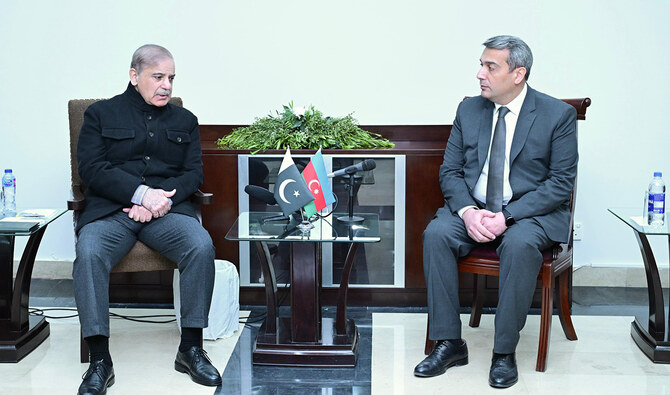KARACHI: Over 15,000 people, including runners in wheelchairs, took part in an annual city race organized in Karachi on Sunday to promote inclusivity and healthy lifestyles.
The “Commissioner Karachi Marathon” has been organized by city authorities for the past three years, with participants covering 10.3 km in the men’s category, 6.3 km in women’s, and 1 km in wheelchairs.
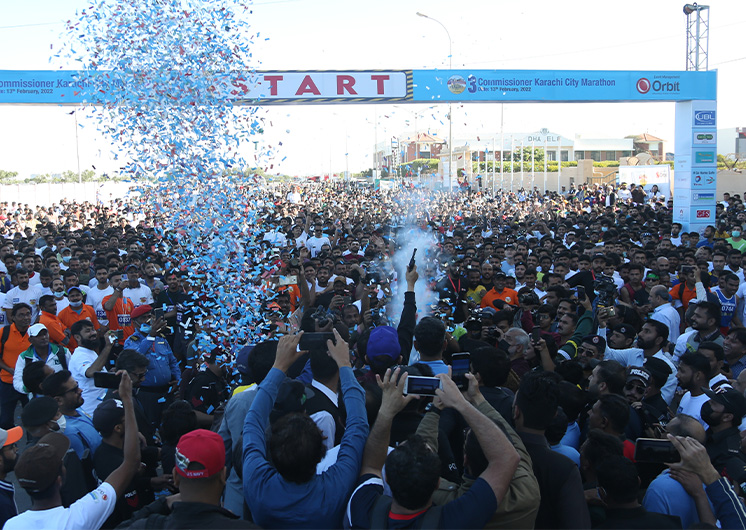
Participants gather to run the "Commissioner Karachi Marathon" in Karachi, Pakistan, on Feb. 13, 2022 (AN photo/S.A.Babar)
“Over 15,000 people from different age groups, backgrounds and walks of life participated in this year’s marathon, which was aimed at promoting a healthy life and giving away a message of peace,” Irshad Sodhar, deputy commissioner of South Karachi, told Arab News.
“Every segment of the society is being represented in this marathon while the people from other cities also participate.”
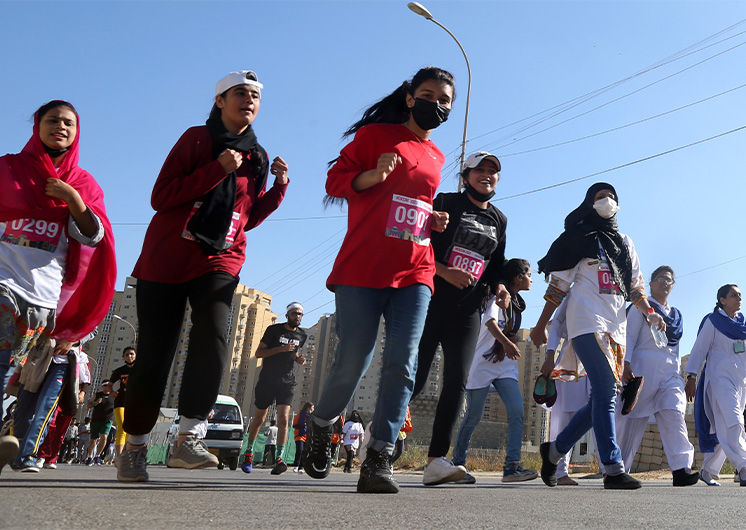
Women racers participate in the "Commissioner Karachi Marathon" in Karachi, Pakistan, on Feb. 13, 2022 (AN photo/S.A.Babar)
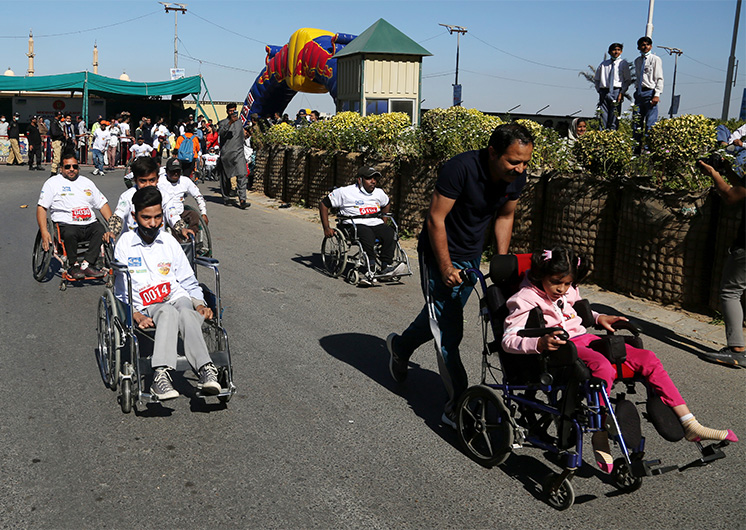
Racers in wheelchairs the "Commissioner Karachi Marathon" in Karachi, Pakistan, on Feb. 13, 2022 (AN photo/S.A.Babar)
Osama Hasan, 17, arrived in Karachi from Kasur in Punjab just to take part in the event. He won in the men’s under-19 age group.
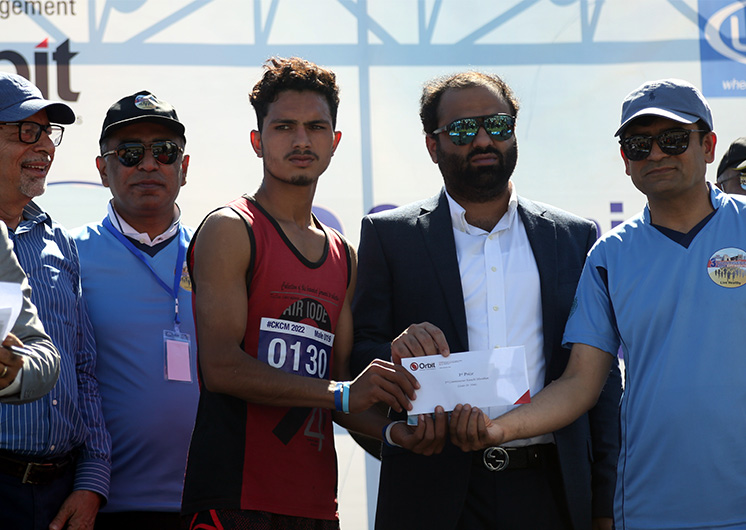
Osma Hasan wins the "Commissioner Karachi Marathon" in the under-19 men's category, in Karachi, Pakistan, on Feb. 13, 2022 (AN photo/S.A.Babar)
“I arrived from Kasur late last night. My hard work yielded result and I stood first in the under-19 category,” he told Arab News. “If youths of other parts of Pakistan also get such chances regularly to participate in marathon, we can excel in this race.”
Mumtaz Naimat, who was the first woman under 19 years to complete the race, said such events were important for the young generation.
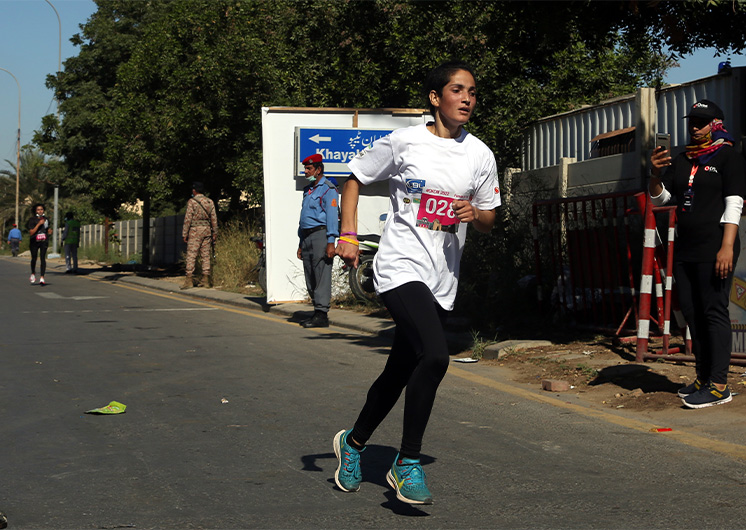
Mumtaz Naimat runs the "Commissioner Karachi Marathon" in Karachi, Pakistan, on Feb. 13, 2022 (AN photo/S.A.Babar)
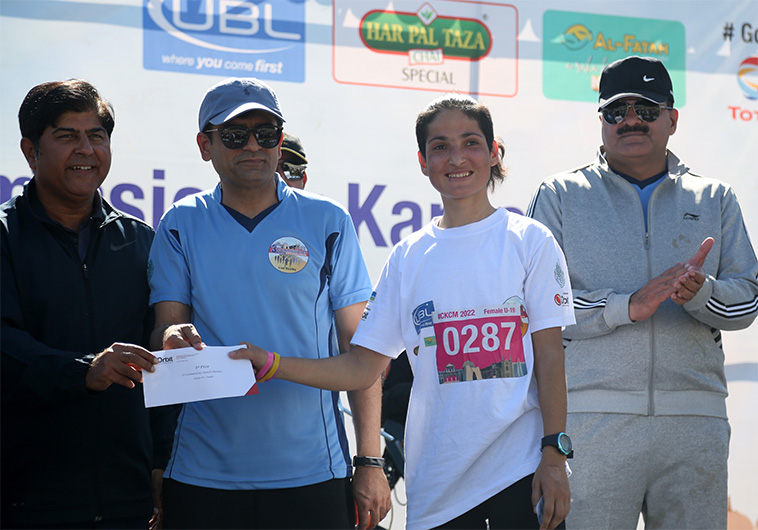
Mumtaz Naimat wins the "Commissioner Karachi Marathon" in the under-19 women's category, in Karachi, Pakistan, on Feb. 13, 2022 (AN photo/S.A.Babar)
“Our generation is an Internet generation and events like this can play a great role in bringing them to a healthy life for a healthy future,” she said.
Fida Hussain, the race’s winner in the wheelchair category, said it helped increase participation of citizens with disabilities, encourage them to go out.
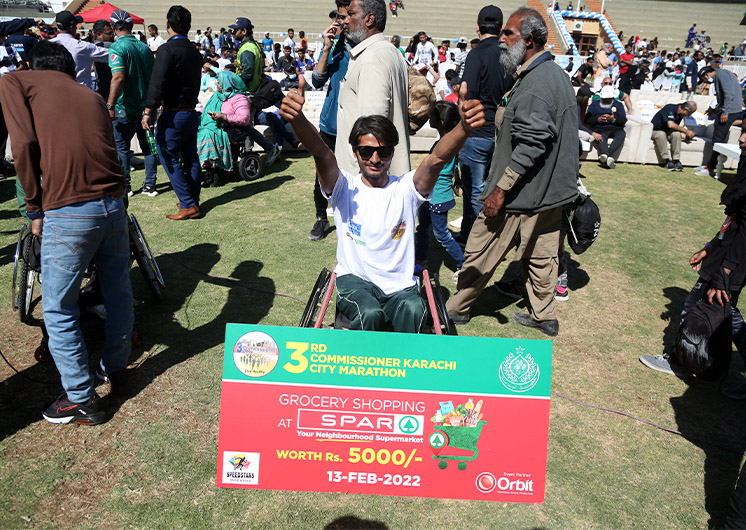
Fida Hussain wins the "Commissioner Karachi Marathon" in the wheelchair category, in Karachi, Pakistan, on Feb. 13, 2022 (AN photo/S.A.Babar)
“Marathon should be held on regular basis as it creates passion and it’s in turn that passion which helps a person perform any task,” he said. “Such event is a moment to highlight one’s capabilities.”
“We can also play a role in the society,” Hussain added. “All we need is enabling environment.”








